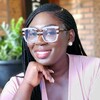As a successful marketing professional and mother of three, I never suspected I had ADHD until my early 40s – a realization that changed my life. Now, years later, I still sometimes struggle with the diagnosis and understanding that I, too, am neurodivergent — and have been my entire life. It explained so much, and yet it also dredged up so many questions, in particular: How did I get this far in life without a diagnosis, and why have the symptoms suddenly become such a prevalent part of my life?
Growing up, I struggled with inattentiveness. In elementary school, I'd daydream, staring out the window and losing track of time - adults typically blamed my “vivid imagination.” I somehow still managed to be a moderately successful student. When I went back to college in my mid-30s as a single mom to three teenagers, I was a straight-A student and an award-winning employee, masking what I didn’t know were ADHD symptoms through perfectionism and people-pleasing.
From the outside, it looked like I sailed through life easily, but on the inside, my brain often felt like it was attending the Mad Hatter's un-birthday party. I struggled with executive dysfunction, which affects planning, organization, time management, and emotional regulation. This meant constantly feeling overwhelmed, forgetting important tasks, and struggling to manage my time effectively. Somehow, I managed to keep it all together at work; I was reliable, even perceived as organized, and a “go-to” resource who always knew where everything was.
It wasn't until perimenopause hit in my late 30s that I felt like everything began to unravel. I was overwhelmed, anxious, and incredibly forgetful. I'd regularly forget the most mundane things, from my keys when leaving the house to finding my lost phone in literally ALL of the following places:
- A bathroom stall at the mall and one at the Chicago Theater
- Under my bed
- In my pocket
- In the dishwasher (thankfully not run yet)
- Between the couch cushions (at least weekly)
- Exactly where I left it (hourly)
And depression? The depression, often common in adult women with ADHD, nearly broke me until I sought professional help. I felt like I was living in a fog, afraid that these changes would start impacting my work in more than just small, primarily unnoticeable ways that it already did.
I also largely believed my symptoms were from anxiety and depression, which is also quite common. Doctors, too, frequently blame neurodivergent traits on depression or anxiety, which is an entirely different article.
Ironically, my middle child had medication-resistant ADHD when he was young, but I didn't connect the dots to myself. As a male, his symptoms presented in the more commonly understood way; he would sit on the floor next to his desk in school, and I frequently found him under racks of clothes - or a different aisle - in a store (I’d have sworn that kid was disapparating between the ages of 7 and 10).
It wasn't until I read an article (or 20 - hyperfixation, yo) that I asked my psychiatrist if I should consider testing for ADHD. Her response was anticlimactic: "No need to do the testing. I've known you’ve had it for at least a year; I didn't want to bring it up until you were ready, though." Oh. Well, the mystery is solved, I guess.
Since females largely present ADHD symptoms differently than males - and most studies on ADHD had, until recently, been done on males - ADHD in females often goes undiagnosed until later in life (or entirely).
Did you know that some common traits and symptoms of ADHD in women include (Litman 2023):
- Inattentiveness and distractibility (often in the form of daydreaming!)
- Hyperfocus on tasks that interest them
- Emotional dysregulation and sensitivity
- Perfectionism and people-pleasing tendencies
- Difficulty with organization and time management
- Procrastination and task avoidance
- Imposter syndrome and low self-esteem
❝Women with ADHD blame themselves for being too distracted to 'catch up' with daily responsibilities. They allow their lack of motivation, disorganization, or lateness to define them and anticipate criticism or rejection. Ashamed of their emotional reactivity, many censor themselves rather than risk inappropriate responses.❞ - Ellen Litman
Coming to terms with being neurodivergent was a process for me, even though I was surrounded by neurodivergent individuals in my family and friends. I learned a lot more about ADHD and how it manifests in women. I discovered that hormonal fluctuations, particularly during perimenopause and menopause, can exacerbate ADHD symptoms (Littman, 2023). This knowledge was empowering and allowed me to understand my brain better and advocate for myself.
As I navigated my diagnosis, I found that sharing my experiences helped others who were struggling in silence. So many people suffer alone, and it's liberating to call out your neurodiversity and understand why you feel or do the things you do. By acknowledging my challenges and successes, I gave them permission to do the same.
Here are a few practical strategies I’ve tried to manage my symptoms with varying degrees of success:
- Recording long meetings to combat auditory processing difficulties.
- Setting alarms and using timers to manage time blindness (there are countless apps for this, too!).
- Setting limits on (phone) screen time. 📵 For me, I limit time on social media and certain other apps.
- Writing everything down in a planner, notebook or digital app to compensate for forgetfulness.
- Breaking tasks into smaller, manageable steps to avoid being overwhelmed❗Bonus: make them tasks so you can check each one off and get that mini dopamine rush of finishing something
- Using noise-canceling headphones or white noise to minimize distractions.
- Accountability buddies! 🏁 My husband will often check in with me in the mornings if he notices I’ve been forgetting my meds lately.
- Parallel working! Similar to parallel play in children, getting on Zoom (or in-person if that’s your jam) and just working alongside a co-worker or friend can help with accountability and distractions. 🗒️ Note: This person could also be a distraction, so use your best judgment there.
- Scheduling regular breaks and prioritizing self-care to prevent burnout ⏰ When I'm hyper-focused on a task, I'll often forget to drink water, use the bathroom, or have lunch. Don’t just say you’re going to do it (best intentions and all that); put it on your calendar, set a phone reminder, etc. Block off 10 minutes to stretch and drink water or 30 minutes to eat lunch or take the dog out. I promise it’s worth it!
Some helpful resources and apps for women with ADHD include*:
- ADDitude Magazine
- RescueTime
- Flora
- Psychology Today (for help finding a mental health provider)
- Focus@Will
- Evernote
- Finish (Find on Apple Store or Google Play)
- ToDoIst
There is also no shortage of advocates and thought leaders on various social media platforms! I’ve found some great advice and insights everywhere, from TikTok to LinkedIn.
* Many apps have both free and paid versions. Those with paid versions typically offer a free trial (just don’t forget to cancel it if it doesn’t work for you!).
Remember, there are endless tips, tricks, apps, and hacks to help you deal with ADHD. A few of them might work for you, while most won't. It's okay to experiment, but give yourself grace. Celebrate your brain! It may be frustrating at times, but it also comes with unique strengths like creativity, problem-solving skills, and the ability to hyperfocus on tasks that interest you (Hallowell, 2022).
My journey has taught me the importance of open communication, self-advocacy, and embracing the strengths of my neurodivergent brain. If you suspect you may have undiagnosed ADHD or are struggling with your diagnosis, know that you are not alone. Seek information, support, and accommodations. You can start with your primary care physician or seek a therapist or psychiatrist who can help. Start conversations about neurodiversity with your friends, family, and in your workplace, and celebrate your beautifully complex mind. With self-awareness and a supportive network, you can thrive both personally and professionally.
---
Littman, E. (2023). Women with ADHD: No More Suffering in Silence. ADDitude.
Hallowell, E. (2022). What Does ADHD Look Like in Women? Many Doctors Are Still Getting It Wrong. ADDitude.














